Featured
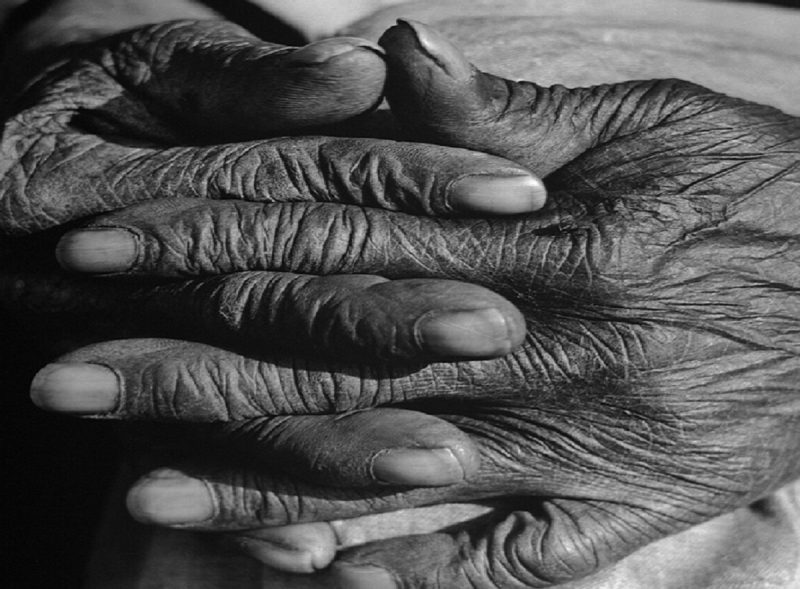 Is Slavery an Evil Beyond Measure? By Jamelle Bouie / NYT
Is Slavery an Evil Beyond Measure? By Jamelle Bouie / NYT
The historian Marcus Rediker opens “The Slave Ship: A Human History” with a harrowing reconstruction of the journey, for a captive, from shore to ship:
“The ship grew larger and more terrifying with every vigorous stroke of the paddles. The smells grew stronger and the sounds louder — crying and wailing from one quarter and low, plaintive singing from another; the anarchic noise of children given an underbeat by hands drumming on wood; the odd comprehensible word or two wafting through: someone asking for menney, water, another laying a curse, appealing to myabecca, spirits.”
An estimated 12.5 million people endured some version of this journey, captured and shipped mainly from the western coast of Africa to the Western Hemisphere during the four centuries of the trans-Atlantic slave trade. Of that number, about 10.7 million survived to reach the shores of the so-called New World. Read more
Related: Slavery Was About Profit. Jamelle Bouie / NYT
Related: Reparations are for descendants of Black slaves, says California official. By AP and NBC News
Political / Social
 Biden Promised a Black Woman on the Supreme Court. By Charles M. Blow / NYT
Biden Promised a Black Woman on the Supreme Court. By Charles M. Blow / NYT
A Supreme Court opening offers Biden an opportunity to move beyond those losses, to change the conversation and the narrative, to emerge with a significant victory that he can hold up as proof of his success. It would put a major mark in the plus column. No justice Biden nominates can change the ideological balance of the court significantly, but all new justices change the dynamic on the court. And every time an excluded group is included, that is good for the institution and its credibility. It is important, I believe, that Black people have a Black person on the court more in tune with the views of the Black community than Clarence Thomas, the lone Black justice for the last 30 years. It has always struck me as a tragedy that Thomas was chosen to replace the liberal lion Thurgood Marshall. Read more
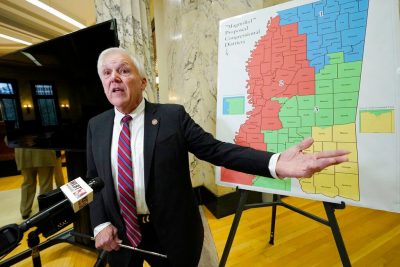 New congressional districts ‘attack’ people of color, report finds. By Bill Keveney / USA Today
New congressional districts ‘attack’ people of color, report finds. By Bill Keveney / USA Today
The ongoing congressional redistricting process “appears to be one of the most abuse laden in U.S. history” in terms of racial discrimination and extreme gerrymandering, according to a Brennan Center for Justice analysis released this month. Racial and ethnic minority groups, which account for much of the nation’s population growth since 2010, won’t be fairly represented in a number of states based on maps that have been submitted as part of a reapportionment process that takes place after each decennial census, according to the report. It says many of those districts have been gerrymandered, which means they were divided to give one party unfair advantage in elections. Read more
Related: GOP-Dominated Pennsylvania Court Declares Mail-In Voting Unconstitutional. By Noah Y. Kim / Mother Jones
Related: We Uncovered How Many Georgians Were Disenfranchised by GOP Voting Restrictions. It’s Staggering. By Ryan Little and Ari Berman / Mother Jones
 Voting rights activists plan protests in Selma, other historic sites. Deborah Barfield Berry ? USA Today
Voting rights activists plan protests in Selma, other historic sites. Deborah Barfield Berry ? USA Today
Civil rights activists are ramping up efforts to press Congress to advance voting rights legislation, including returning to the site where the late Rep. John Lewis led a historic march for voting rights more than 50 years ago. “We’re still in this fight,’’ said LaTosha Brown, co-founder of Black Voters Matter. “This is a time of reckoning.” Black Voters Matter and other civil rights groups will retrace the 54-mile march from Selma to Montgomery, Alabama, that garnered national attention in March 1965. The landmark Voting Rights Act was signed into law that summer. Read more
Related: Joe Madison just ended his 73-day hunger strike. Was it worth it? By karen Attiah / Wash Post
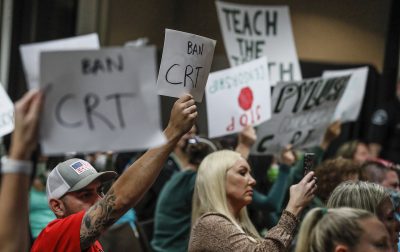 The GOP Dials Up Its Attacks on Critical Race Theory. By Sasha Abramsky / The Nation
The GOP Dials Up Its Attacks on Critical Race Theory. By Sasha Abramsky / The Nation
The campaigns are focused on racially diverse communities with declining numbers of white students that are located in politically competitive districts.
Since the summer of 2020, nearly 900 school districts around the country, covering 35 percent of K-12 students in the United States, have been roiled by campaigns against the teaching of critical race theory. Most of the school districts in which the local anti-CRT campaigns have picked up steam have two traits in common: They are racially diverse communities that have, over the past two decades, seen large drop-offs in the percentage of white students as demographic patterns shift; and they are in politically competitive districts where Republicans and Democrats both have a realistic chance at capturing the majority of votes. Read more
Related: Meet the moms of color from Texas fighting book bans at their kids’ schools. By
 It’s Time for an Honest Conversation About Affirmative Action. By Jay Caspian King / NYT
It’s Time for an Honest Conversation About Affirmative Action. By Jay Caspian King / NYT
On Monday, the Supreme Court announced it would hear arguments in Students for Fair Admissions v. President and Fellows of Harvard College. In 2014, the group sued the university, accusing it of discriminating against Asian students during its admissions process. After years of court filings and an actual trial, S.F.F.A. ultimately lost its case but immediately appealed to the Supreme Court. Read more
Related: I once told a Supreme Court justice that affirmative action got me into Harvard and Yale. Today they wouldn’t listen. By Paul Butler / Wash Post
 How 2 Black women conquered Senate primary politics. By Maya King / Politico
How 2 Black women conquered Senate primary politics. By Maya King / Politico
As Black women running in two of the nation’s most closely watched Senate races, Democratic Rep. Val Demings of Florida and former North Carolina Supreme Court Justice Cheri Beasley are poised to make history if they’re successful in November. But that’s only part of what makes their campaigns stand out this year. Demings and Beasley have drawn notice — and a heavy dose of respect within their party — for accomplishing a feat that has all-too-frequently eluded candidates of color, especially Black women: Managing to clear their Senate primary fields of heavyweight competition. Read more
 White women and fascism: Seyward Darby on how right-wing women embrace their “symbolic power.” By Chauncey Devega / Salon
White women and fascism: Seyward Darby on how right-wing women embrace their “symbolic power.” By Chauncey Devega / Salon
White women have played a central role in America’s neofascist movement and its assault on multiracial pluralist democracy. Either as figureheads or actual leaders, white women have stood at the forefront of the Republican Party’s attempt to use the bogeyman of “critical race theory” to launch a widespread moral panic and restrict the teaching of American history. The ultimate goal is to severely undermine or fully destroy our current system of public education, and replace it with “patriotic” indoctrination meant to reinforce and protect white privilege and other forms of inequality. Read more
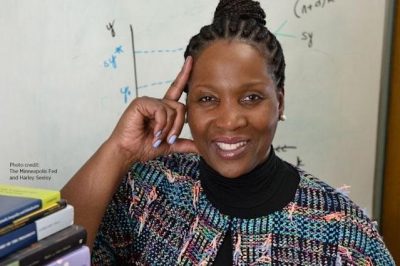 Biden’s Federal Reserve Nominee Lisa Cook Is Facing A Racist Smear Campaign. By Amanda Terkel / HuffPost
Biden’s Federal Reserve Nominee Lisa Cook Is Facing A Racist Smear Campaign. By Amanda Terkel / HuffPost
Yet another woman of color nominated for a high-profile government job is facing a smear campaign from the right. This time they’re going after Lisa Cook, a professor of economics and international relations at Michigan State University. If confirmed by the Senate, she would be the first Black woman to serve on the Federal Reserve’s seven-member board of governors. “The attacks are racist, sexist and just plain dumb. But make no mistake: There’s a reason behind them that goes to the heart of the matter ― and that is, she’s good. That’s why she’s under attack,” Sen. Elizabeth Warren (D-Mass.) told HuffPost. Read more
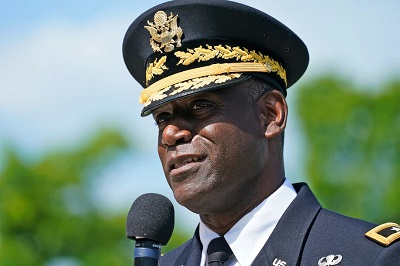 VMI’s first Black superintendent blasts White critics of diversity and equity reform. By Ian Shapira / Wash Post
VMI’s first Black superintendent blasts White critics of diversity and equity reform. By Ian Shapira / Wash Post
A scathing Facebook post from VMI leader Cedric T. Wins exposed the battle over the future of the nation’s oldest state-supported military college.
Retired Army Maj. Gen. Cedric T. Wins had a message he wanted to send. The first Black superintendent of Virginia Military Institute went onto Facebook Jan. 21 and set off a social media skirmish. His target: a well-connected White alumnus who had questioned VMI’s push for diversity, equity and inclusion at the nation’s oldest state-supported military college. Read more
Ethics / Morality / Religion
 The sacred work of white discomfort. By Robert P. Jones / Religion News
The sacred work of white discomfort. By Robert P. Jones / Religion News
In Florida, a state Senate committee wants to make it illegal to cause discomfort to white people. This bill, which reads like a scene from the novel “1984,” is a doozy. You can, and should, read the full text of it here. The bill purports to “protect individual freedoms and prevent discrimination in the workplace and in public schools.” But it then proceeds to define “individual freedoms” and “discrimination” in ways that are unrecognizable to the plain, historic meaning of those words. If we white Christians can muster the courage to walk in its company, discomfort with our racial history can be a sacred and saving gift. Read more
 How the Capitol attacks helped spread Christian nationalism in the extreme right. By Jack Jenkins / Religious News
How the Capitol attacks helped spread Christian nationalism in the extreme right. By Jack Jenkins / Religious News
When supporters of former President Donald Trump rallied near the White House on Jan. 6 of last year, a boisterous pocket of young men waving “America First” flags broke into a chant: “Christ is King!” It was one of the first indications that Christian nationalism would be a theme of the Capitol attack later that day, where insurrectionists prayed and waved banners that read “Proud American Christian.” Read more
 On Holocaust Remembrance Day, lessons from three popes’ visits to Auschwitz. By Yehiel E. Poupko / NCR
On Holocaust Remembrance Day, lessons from three popes’ visits to Auschwitz. By Yehiel E. Poupko / NCR
Editor’s note: Jan. 27, the anniversary of the 1945 liberation of Auschwitz-Birkenau concentration camp, is International Holocaust Remembrance Day. The theme of this year’s commemoration is “Memory, Dignity and Justice.”
Mark well the pattern of these three papal witnesses. John Paul II identified the victim, singled out for particular measure of evil, the Jewish people. Benedict named and taught the nature of the sin. The Holocaust was not just genocide. It was deicide, an attempt to “murder” the God of Israel, if one dare speaks thus. The first papal visit identified the victim. The second papal visit defined the sin. The third papal visit taught the way of remembrance. Read more
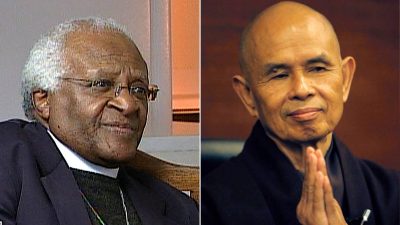 Father John Dear on Desmond Tutu & Thich Nhat Hanh: Two Peacemakers Who Changed the World. By Amy Goodman / Democracy Now
Father John Dear on Desmond Tutu & Thich Nhat Hanh: Two Peacemakers Who Changed the World. By Amy Goodman / Democracy Now
In an extended interview, Father John Dear, longtime peace activist and former director of the Fellowship of Reconciliation, recalls the lives and impact of his close friends Thich Nhat Hanh and Archbishop Desmond Tutu, who corresponded with him regularly. Thich Nhat Hanh, the world-renowned Buddhist monk, antiwar activist, poet and teacher, died Saturday at the age of 95, and South African anti-apartheid icon Archbishop Tutu died last month at the age of 90. Dear is the former director of the Fellowship of Reconciliation, which first brought Thich Nhat Hanh to the United States in the 1960s, and is now executive director of the Beatitudes Center. Listen here
Historical / Cultural
 Why Students Need to Learn about Reconstruction. By Ryann Miller / The Progressive
Why Students Need to Learn about Reconstruction. By Ryann Miller / The Progressive
It’s difficult to understand today’s racial injustices without knowing about the radical decade that followed the Civil War.
A 2018 report by the Southern Poverty Law Center highlights that schools are not adequately teaching the history of American slavery, educators are not sufficiently prepared to teach it, and textbooks do not have enough material about it. As a result, students lack a basic knowledge of the important role slavery played in shaping the United States and the impact it continues to have on race relations. More recently, the Zinn Education Project published a study revealing that schools are not only missing the mark on slavery but also in teaching lessons on the Reconstruction era. Reconstruction, the post-Civil War period from 1865 to 1877, was marked by formerly enslaved people who fought to secure their economic, social, political, and cultural future while living in the land of their captors. Read more
Related: Art Spiegelman sees the new ban of his book ‘Maus’ as a ‘red alert.’ By Michael Cavna / Wash Post
 In the Black South, You’re Always Considered. By Imani Perry / The Atlantic
In the Black South, You’re Always Considered. By Imani Perry / The Atlantic
A reflection on André Leon Talley, Eartha Kitt, and going home.
On Tuesday, my seventh book South to America: A Journey Below the Mason-Dixon Line to Understand the Soul of a Nation was released. In my anticipation (and anxiety), I’ve been thinking about the South as both an idea and a region even more intensely than usual. And that’s saying something, because I am fairly obsessed with the region of my birth and have been for most of my life. In this book, I ask readers to travel with me, through the landscape but also through history. It is more invitation than proclamation, more exploration than argument. And it is a book of encounters. And there were a few new encounters over the past week that I wanted to share here, because they resonated deeply with the why and what of this book. Read more
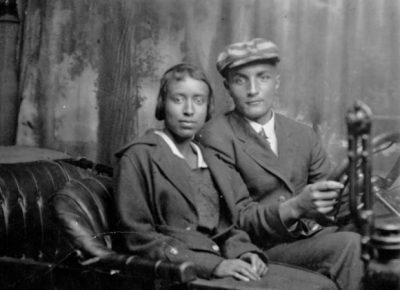 Remarkable photos of Black America 100 years ago. By Leslie Gornstein / CBS News
Remarkable photos of Black America 100 years ago. By Leslie Gornstein / CBS News
The celebration of Black history in the U.S. has a long history itself. President Gerald Ford may be credited for officially recognizing the tradition in 1976, but a month-long celebration of Black American achievement goes back decades earlier. Black communities have held special events in February — the birth month of both Frederick Douglass and Abraham Lincoln — since the late 19th century. 1926 was a banner year, thanks to historian Carter G. Woodson’s declaration of a Black history week. The first collegiate institution to celebrate Black History Month is thought to be Kent State University, in 1970. Here’s a look at what many facets of Black American life looked like roughly a century ago. Here, a couple poses for a photograph behind the wheel of an automobile, in a photography studio, in front of a painted backdrop. The year: 1925. View here
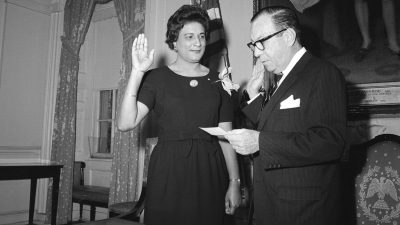 This Black woman judge laid the groundwork for those who would follow. By Brandon Tensley / CNN
This Black woman judge laid the groundwork for those who would follow. By Brandon Tensley / CNN
 Remains of massacred ancestors returned to Wiyot Tribe. By Brian Melley / AP and ABC News
Remains of massacred ancestors returned to Wiyot Tribe. By Brian Melley / AP and ABC News
The most vulnerable members of the Wiyot Tribe were asleep the morning of Feb. 26, 1860, when a band of white men slipped into their Northern California villages under darkness and slaughtered them. Many of the children, women and elderly slain in what became known as the Indian Island Massacre had their eternal rest disturbed when their graves were later dug up and their skeletons and the artifacts buried with them were placed in a museum. After nearly 70 years of separation from their tribe, the remains of at least 20 of those believed to have been killed have been returned home. Read more
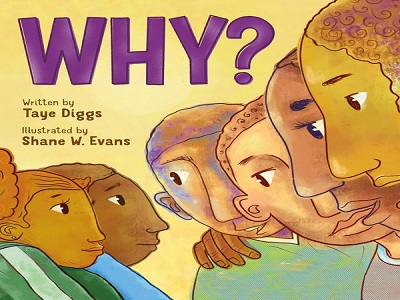 Taye Diggs ‘Why?’: Son inspired his new book on racial injustice. By Elise Brisco / USA Today
Taye Diggs ‘Why?’: Son inspired his new book on racial injustice. By Elise Brisco / USA Today
Taye Diggs “never had a dream” of writing children’s books. Now, he’s written five. The Broadway, TV and movie actor’s latest book, “Why? A Conversation About Race” (Feiwel & Friends, 32 pp., out Tuesday), makes racial injustice, a topic that is often difficult for adults to discuss, palatable for conversation among young readers with “an honest take.” Diggs’ “Why?” (illustrated by frequent collaborator Shane W. Evans) follows children’s curiosity as they witness unrest similar to scenes from summer 2020, when “Black Lives Matter” protests emerged in response to the inequities of police brutality. Each young character asks the adults around them “why” people are shouting and crying, or “why” buildings are burning. Read more
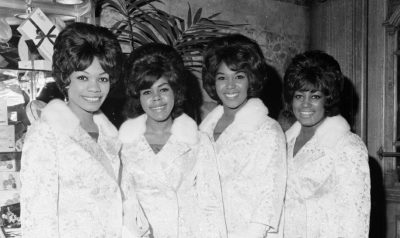 Let’s hear it for the doo-wop girl groups: Their songs of love and heartbreak shaped a generation. By Denise Oliver-Velez / Daily Kos
Let’s hear it for the doo-wop girl groups: Their songs of love and heartbreak shaped a generation. By Denise Oliver-Velez / Daily Kos
The world of music has changed since the ‘50s and ‘60s. We now have music videos on YouTube, internet radio and streaming services, major hype for the GRAMMY Awards (rescheduled to April 3) and musicians with social media followings numbering in the multiple millions. Many of you readers were not alive in the days of 45 rpm records, which you had to save up your allowance to buy. You may not know the names of revered Black radio disc jockeys who played the records we wanted to hear. So join me today on a trip back in time, when plaintive laments from girl groups struck chords in the hearts of many young girls and boys. Shown are the The Shirelles who soared to the top of the Billboard charts. Read more
Sports
 College sports earns poor grade for racial, gender hiring practices. By Richard Lapchick / ESPN
College sports earns poor grade for racial, gender hiring practices. By Richard Lapchick / ESPN
Opportunities for people of color and women to be hired in college sports are still not where they need to be for real diversity, equity and inclusion on too many campuses. The current state of diversity at the NCAA headquarters needs to be improved if it is to be held up as a model for diversity, equity and inclusion at member institutions. There are many examples of this need in the 2021 DI FBS Leadership College Racial and Gender Report Card, published today by The Institute for Diversity and Ethics in Sport (TIDES) at the University of Central Florida. Read more
 Jackson State’s Shedeur Sanders is first college football player to sign NIL deal with Gatorade. By Tom Vanhaaren / The Undefeated
Jackson State’s Shedeur Sanders is first college football player to sign NIL deal with Gatorade. By Tom Vanhaaren / The Undefeated
When Gatorade told Shedeur Sanders he would be the first college football athlete to sign a name, image and likeness (NIL) deal with the national brand, he was at a loss for words. Sanders has been a part of other NIL deals with big brands, including Beats by Dre and famed quarterback Tom Brady’s new apparel line, but being the first to represent an iconic athletic sports drink, and to do it at a historically Black college and university (HBCU), meant Sanders’ plan was working. He’s proud to represent these companies, but he considers his path — playing quarterback for his father, head coach Deion Sanders at Jackson State – a movement to help others around him and to continue making noise on a nontraditional route. Read more
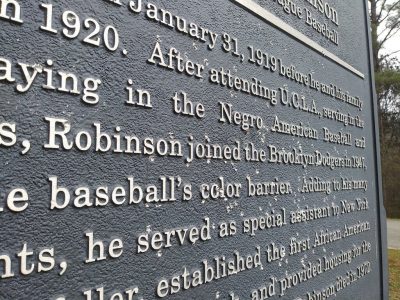 A Marker Honoring Jackie Robinson Was Defaced. M.L.B. Helped Replace It. By James Wagner / NYT
A Marker Honoring Jackie Robinson Was Defaced. M.L.B. Helped Replace It. By James Wagner / NYT
In the countryside of southwestern Georgia, roughly two miles north of the Florida border, in a small clearing of trees alongside Route 154, a brick chimney stands alone. An accompanying historical marker notes that the house that once stood there burned down in 1996. It’s all that remains of the place where one of the most important figures in American history was born. The marker appeared to have been shot with a shotgun, leaving marks that could not be repaired. Read more
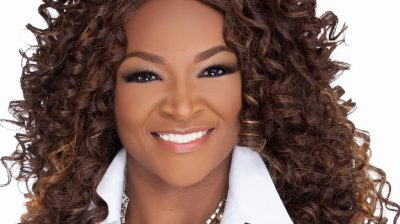 Rainmaker. Boss. Baker. Meet Tamika Tremaglio, the new head of the NBA players’ union. By Ben Golliver / Wash Post
Rainmaker. Boss. Baker. Meet Tamika Tremaglio, the new head of the NBA players’ union. By Ben Golliver / Wash Post
Numbers have driven Tremaglio’s professional life, from her decision to pursue a law degree from the University of Maryland and an MBA from the University of Baltimore, to her career at Deloitte, where she served as managing principal for the global accounting behemoth. This month, the 51-year-old stepped in as the NBPA’s executive director at a time when finances are top of mind given pandemic-related losses and the extraordinary growth in media rights revenue, player salaries and off-court investment opportunities over the past decade. Read more
 The numbers back up the eye test: Tyreek Hill is the NFL’s fastest player. By Des Bieler / Wash Post
The numbers back up the eye test: Tyreek Hill is the NFL’s fastest player. By Des Bieler / Wash Post
To Chiefs Coach Andy Reid, the most exceptional aspect of his star wide receiver’s speed is its relentlessness. “The thing that amazes me the most is that he’s fast and quick, but it’s his endurance while being fast and quick,” Reid said of Hill in November. “Normally, you don’t see that. I tell him that he has this ‘Cheetah’ nickname but he is really not a cheetah because they’re normally a burst and then they go rest for about eight hours. That’s not this guy. “He can keep going, over and over again. It’s pretty amazing.” Read more
Site Information
Visit our home page for more articles, book/podcast and video favorites. And at the top of this page register your email to receive notification of new editions of Race Inquiry Digest. Click here for earlier Digests.
About Race Inquiry and Race Inquiry Digest. The Digest is published on Mondays and Thursdays.
Use the buttons below to share the Digest in an email, or post to your Facebook, Linkedin or Twitter accounts.